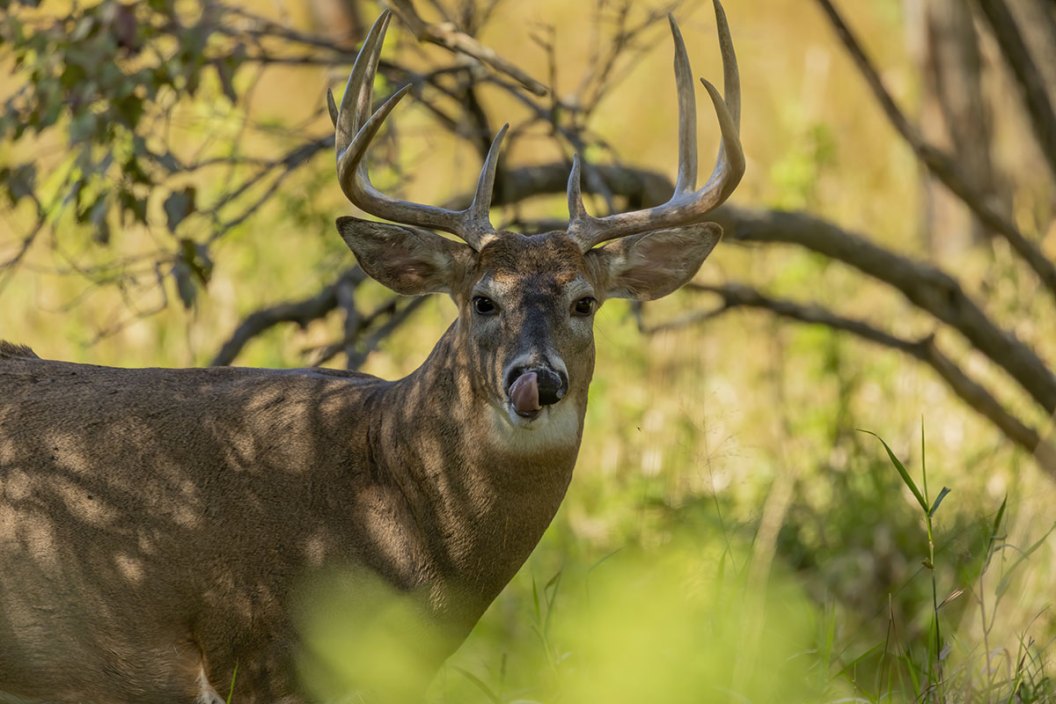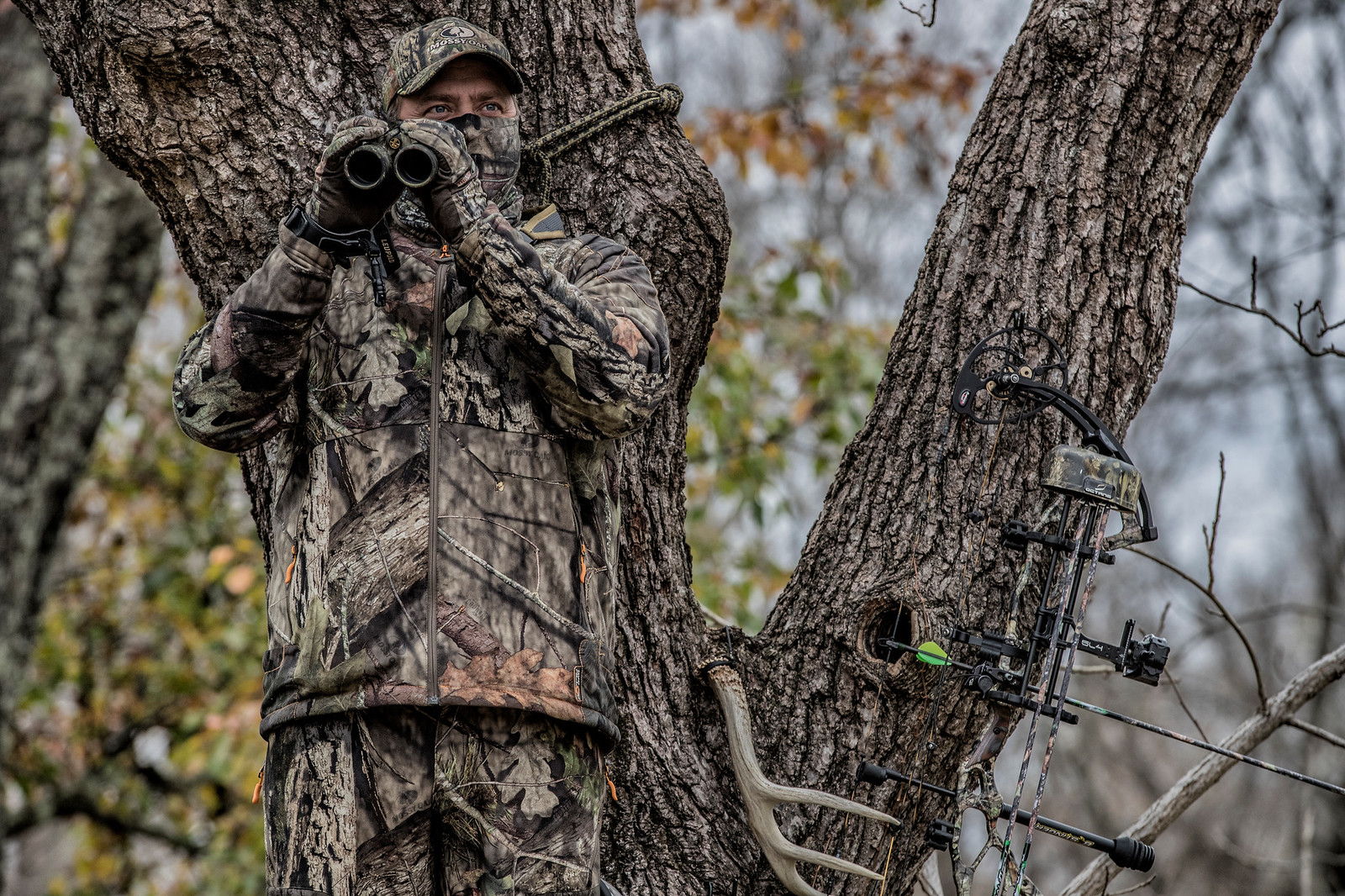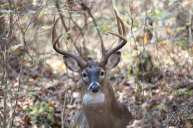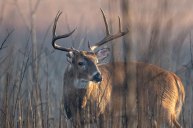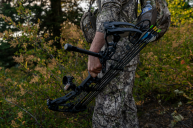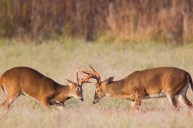Try to avoid these deer hunting mistakes before it's too late.
Any deer hunter trying to hunt the elusive whitetail during the rut should know something. The big buck he or she is waiting for is already out there, waiting for them. You're in his territory now, and like it or not, he has the advantage.
And we're not just talking about deer here. Ducks and geese wise up very quickly once the shooting starts, as well as wild pheasants and even grouse. But since the deer season, especially the archery season, always arrives quickly, we'll stick to the wily whitetail and mule deer for now.
Bowhunters should far and away have their treestand ready and have also identified bedding areas, common food sources, and escape routes by now. It's just that we always think we have it all covered when something unusual or even obvious rears its ugly head and attempts to foil us.
As a rule, we feel like today's deer hunters have all of these bases covered. But when the excitement of the season is upon us, it's easy to overlook some things.
There's that old saying some veteran hunters use that sounds something like, "I already forgot more about deer hunting than you'll ever know." Ever heard that one before?
Since it's just a simple review, we'll try to stick to some common mishaps, but maybe we can come up with a few interesting things that might make you think. It all boils down to us wanting the same thing that you want: a successful deer harvest and venison in the freezer.
Common Deer Hunting Mistakes
Let's begin with the easy stuff that we should all be aware of right out of the gate just for review. They're common mistakes for a reason.
Stand location and wind direction aside that monster buck wont show himself like last year with a few blunders involved, and it happens to the best of us. Pre-rut seasonal scouting for a mature buck over early season food sources may make all the difference, but showing yourself too often in the cover and leaving your smell behind will make him disappear.
Hunting the Same Stand Over and Over
It's only a matter of time before the deer that made all that great sign you're now hunting over start to pattern you and avoid the area altogether. One of the most common reasons why the deer stop coming by that good area is because you walk in and out the same way every time.
It's one of the hardest thing to do in deer hunting: give your number one spot a rest once in a while.
Use trail cameras to your advantage, and view them as potential stand locations if needed.
Not Clearing Shooting Lanes Properly
It's not so much doing it, but doing it right. Check your stand's shooting viability well before the season starts. The key is to do it early enough to let your area settle back down, but not too early so that it grows right back up to interfere.
Maybe the best way to cut and clear shooting lanes involves tackling it with your hunting buddy. With one person on the ground and one in the stand, both people can now see the differing perspectives brought on by the area. A man on the ground can tell if you're too exposed by cutting an area, and a man in the stand can see obvious kill zones that can't be ignored.
There are two other things to always consider when cutting lanes: try to get it done with some leaves on the trees and shrubs so that you know every single twig is accounted for, and don't discount an area on your offhand side. In other words righties should clear lanes to their right and lefties to their left.
Not Shooting Enough
Whatever you use, you need to use it more. Bowhunters especially need to shoot early and often, and keep shooting during the season. That's so their ability to strike the target over and over creates a massive self-confidence. That's so important when the moment of truth arrives.
For firearms hunters, the worst thing that you can do is to assume that you rifle or shotgun is still sighted in exactly the same. That's not to say it's not, but it's always worth checking. Do you really want the deer of your dreams to be standing right in front of you when you shoot so wide you don't even know where you missed?
The biggest mistake is not shooting exactly what you will shoot at the deer, whether it be ammunition or broadheads. Practice makes perfect. There's another one of those old sayings.
Scent Elimination Basics
This has been a strong point for every deer hunter since it became common knowledge that deer have an impressive sense of smell. It's not that we don't wash our hunting clothes to be scent free or ourselves, but what other things have we forgotten?
You can always take a scent-free shower the night before, but then if you sleep in your bed all night you're reversing the work done. It might sound silly, but unless you washed your sheets and pillow cases that day to be scent free, then you'll need to take another scent-free suds soak first thing in the morning. It's happened to the best of us: you just spent the entire night lying in your own smell.
How about your car seat? Most of us have to travel to our deer hunting area in the same vehicle we went to and from work all week. Remember when you spilled that coffee weeks ago? You and I can't tell but the deer can.
Take a few moments to spray your seats with an odor eliminating product so that you don't drive all the way to your favorite deer spot wallowing in your own human scent.
Getting Out of the Stand Too Soon
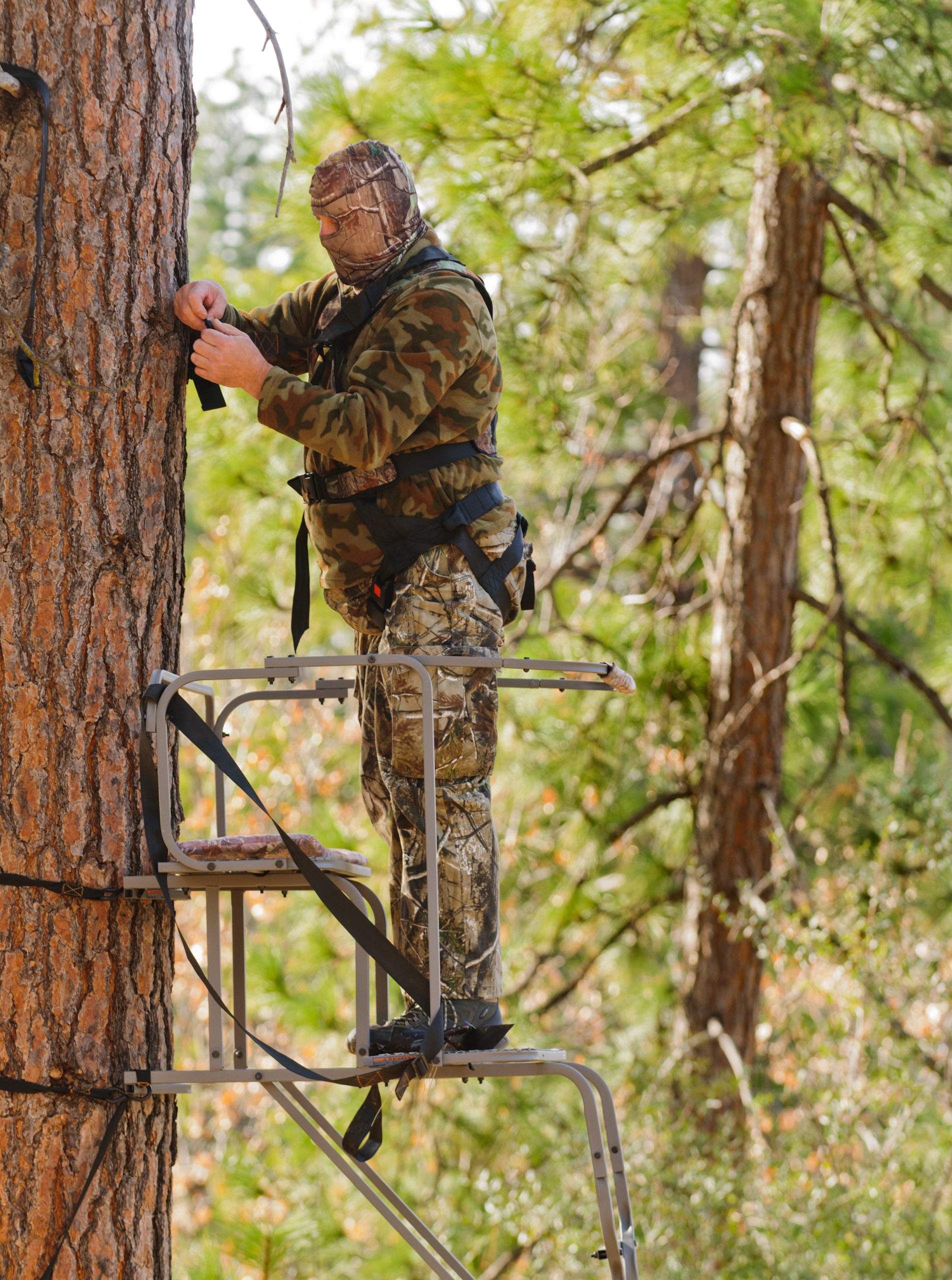
There are so many reasons deer hunters get up and get out of their stands: sometimes it's lunch, sometimes they have to stretch their legs, or sometimes nature calls. It could be anything. But it should never be because you're bored, or because you aren't seeing any deer.
Maybe the best reason to stay put is the fact that so many others ditch out, and that movement can direct deer your way. Every hunter should be ready, willing, and able to sit for the entire day, short of emergencies or other obligations.
Not Prepping for the Weather
We almost forgot one of the biggest reasons why hunters move from their treestands or ground blinds too soon: they get cold. It's just not enough to have good socks, boots, gloves, and a hat. Take the time to place warmers in your boots or gloves, since your hands and feet are so far from your vital organs and are the hardest to keep warm.
A thin balaclava under a hat or hood works well, and sometimes you need all three. But are they waterproof? Rain and wet snow can fall during hunting season. Those opportunities are ruined by improper readiness. Invest in good hunting gear, because cold shouldn't be an excuse.
Physical Preparation Counts
This doesn't just take effect if you're mountain hunting seven miles into the backcountry. It all starts with eating right and getting enough sleep, something all of us need to do regardless. But when you're talking about deer hunting it's paramount.
How many times can we say that we sat in our stand for the short part of a morning when we realized that we were nodding off? Not only is it dangerous, but try to remember how easy it is to miss the little things that matter if you're tired: movement, sound, and even the way the other creatures in the woods react.
Other Hunting Season Miscues
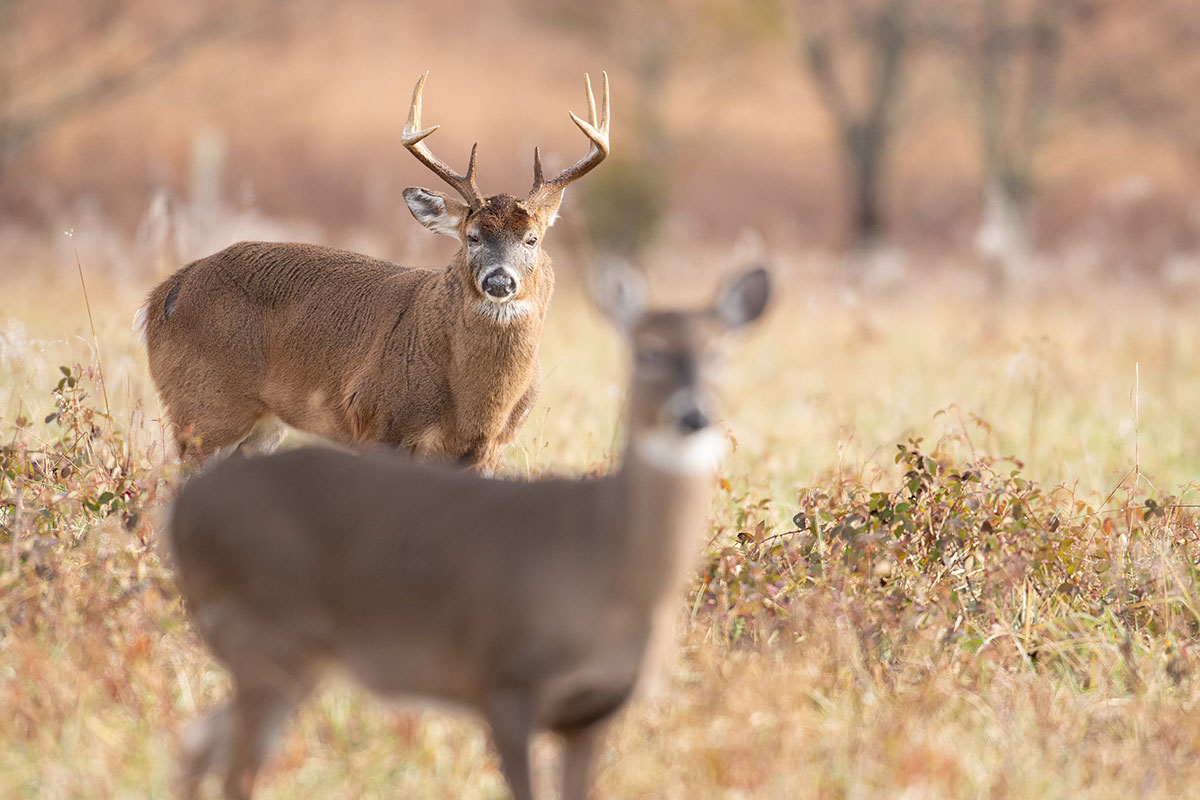
There are a few other things that may seem like semantics, but everything counts when we're deer hunting. Despite the fact that unprepared hunters still score, sweating the small stuff is how your buddy nailed that wall hanger last season. Here are a few extras that are worth thinking about.
Not Considering Hunting Pressure as Your Ally
This is another part of being prepared to sit for the length of the day. Believe it or not, other hunters moving can get you your deer. In fact, as the season wears on, deer become more and more nocturnal and won't move during the daylight unless they get stepped on. Knowing where other hunters are apt to be, and more importantly apt to be moving, can have you seeing deer when others aren't.
This thought process should also be a part of your preseason preparation, particularly lane cutting. Knowing which directions deer may move to escape other hunters can be just as important as knowing where they move through naturally.
Not Calling or Rattling
This mistake could translate to possibly not calling or rattling enough. Deer are still acting naturally in the early part of the season, and just because you haven't seen that buck yet doesn't mean that he's not there. It's up to you to know your calls, know how and when to use them, and pull it off like the real thing.
This isn't just a great part of deer hunting success, it's a great way to hone a skill and use it to perfection.
My advice is to leave a grunt tube in you car or truck and practice while you drive. If nothing else, you will garner some priceless looks from other folks on the road to work.
Not Using a Decoy
Decoys have a place in nearly every hunters repertoire, and deer hunting should be no exception.
The thing is this: a full size deer decoy can make all the difference because they can easily fool the wariest deer. But you must be careful: using a decoy during the open firearms season can have deadly results, especially if you try to use one on public land. Certainly check your local regulations, but you should be within regulation in most states using a deer decoy while hunting.
Lack of Confidence
One thing you can't teach is experience, and experience is everything in deer hunting. Experience gives us the lessons we need to get better, and many times those lessons are exercises in failure. Having deer bust us in our stand is like a master class, and it doesn't stop there.
Telling the truth to your hunting friends and family can only acerbate the issue and make you feel like you're two feet tall.
This is where confidence can fail a hunter and stick with him for many years, but it certainly doesn't have to be like that. It's only a matter of time before you have some success, the type of which will make you a good deer hunter for life.
There will always be some kind of problem in the wake of the open season, which gives rise to the belief that we always need to be vigilant in our ways. Honestly, we should all be done fiddling with our stands, lanes, and gear at least two weeks before the opener ever hits.
The biggest mistake of all is not letting the woods settle back in from our exploits of sound, motion, and smell that we can't help but leave behind when we enter the forests and swamps that we hunt.
Looking for a little more or even hot lunch for your hunting blind? Follow my webpage, or on Facebook and Twitter.
NEXT: HUNTER'S MOON: WHAT THE TERM MEANS AND WHERE IT ORIGINATED
WATCH
